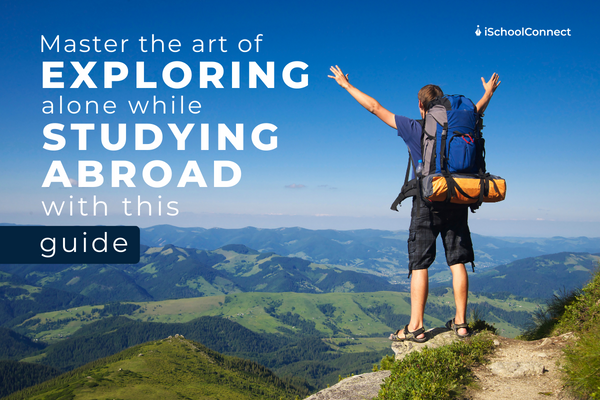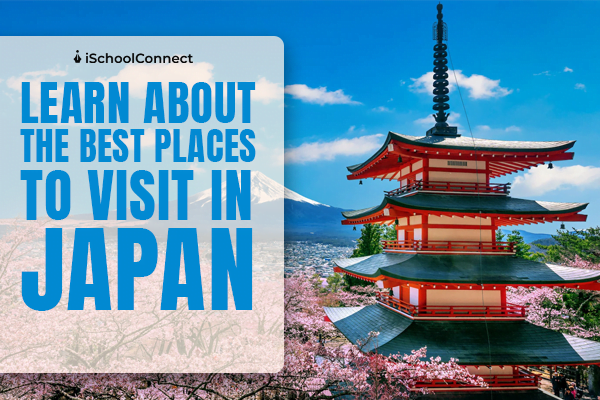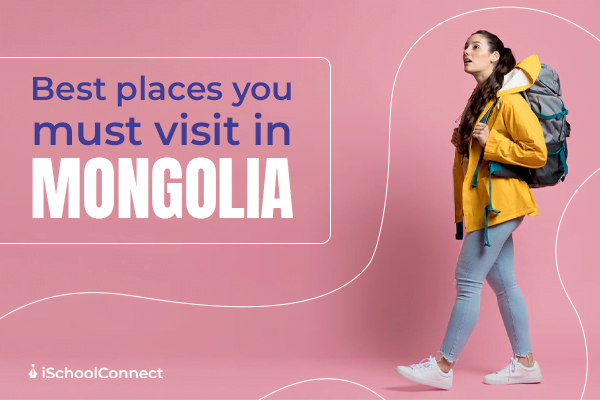Table of Contents
Why should you travel solo?
Solo travel offers a unique and rewarding experience encompassing self-discovery, freedom, empowerment, cultural immersion, personal growth, and the freedom to explore one’s interests. By embarking on solo adventures, individuals can delve deep into their own thoughts, challenge themselves, and gain a better understanding of their true selves. The freedom and flexibility of traveling alone allow for spontaneous adventures and decision-making solely based on personal preferences. Engaging in solo travel also builds confidence, independence, and problem-solving skills while fostering cultural immersion through interactions with locals and developing diverse perspectives. Let’s continue with our guide to solo travel.
Tips for traveling solo while studying abroad
Do your research
Before embarking on your journey, it is essential to conduct thorough research. Take the time to plan your accommodation and transportation arrangements. Familiarize yourself with the safest areas of the city you are visiting and understand how the local transportation systems, such as buses or metros, operate. Consider the most cost-effective options for getting around- taxis, ride-sharing services like Uber, or simply walking. Travelers can also refer to a guide to solo travel for more insights.
If you are traveling to a country where the language is different, such as France, try to learn a few basic phrases to communicate with locals and show respect for their culture. You should write down important information such as your hotel or hostel address, as well as the name and terminal of the airport. This ensures that you have essential details readily available, especially in the case of navigation challenges or cell service loss.
Keep your belongings safe

It is unfortunate but important to acknowledge that pickpockets often target international travelers, particularly Americans. It is essential to prioritize the security of your belongings, especially valuable items such as your cell phone, passport, credit card, and cash. To avoid drawing unnecessary attention, use the local language or include commonly used phrases while you are talking to sound more confident. Refrain from displaying valuable possessions in tourist-heavy areas.
A practical approach to keeping your belongings safe is to store your cell phone and cash in a secure, zippered coat pocket while using a crossbody purse or camera bag. When carrying a camera, take precautions by wrapping the strap around your wrist multiple times or wearing it around your neck. In colder climates like Northern Europe, wearing a large scarf can serve the dual purpose of protecting your camera from rain and concealing it from thieves.
It’s important to note that theft can occur even in seemingly secure places such as airports, train stations, and buses. Despite the inconvenience, keeping your bags with you at all times is highly recommended. Whether you need to use the restroom, grab a meal, or check timetables, ensure your bags are always within your line of sight or in your hand.
Appear confident
When traveling alone, it is important to project confidence and attentiveness. Avoid engaging in activities that may distract you, such as texting or rummaging through your bags while walking. Maintaining awareness of your surroundings, especially during nighttime, is essential for personal safety. When you hear a sound, stop and visually assess the situation. Being considerate to others by making space on the sidewalk and walking with purpose and confidence keeps you alert and demonstrates that you are aware of your surroundings.
Make the most of your time alone
When you are on a solo exploration trip, it is important to prioritize the activities and attractions that appeal to you the most. Whether it’s visiting renowned shops, immersing yourself in museums, joining walking tours, or discovering local culinary gems, tailor your plans according to your interests.
Conducting some preliminary research will help you optimize your solo adventures in a new destination. It’s also important to allocate time for spontaneous exploration. Allowing yourself the freedom to wander at your own pace and delve into the areas that you find most interesting can result in a truly immersive and unforgettable experience.
Look like a local
To avoid standing out as a tourist, blending in with the local culture when traveling is advisable. You can achieve this by dressing like the locals. It can be dressing more formally or casually or adapting to the local fashion norms.
Observing and adapting to the behavior of locals in public places is also important. Different settings may have different expectations, such as being more lively and talkative in a pub but maintaining a quieter demeanor in a café or museum. You should be mindful of cultural customs and gestures, as certain actions that may seem harmless in one country could be offensive in another. Prior research on local customs can help in this regard.
You should respect cultural landmarks, monuments, memorials, and religious sites. It’s essential to follow guidelines and regulations, such as avoiding restricted areas, refraining from using cell phones or cameras where prohibited, and being aware of traffic rules. Maintaining a respectful attitude towards the places you visit and the people you encounter is a sensible approach. Using common sense and being considerate of local customs and traditions can greatly enhance your travel experience.
Key takeaways
- Solo travel offers unique benefits such as self-discovery, freedom, empowerment, cultural immersion, personal growth, and the opportunity to explore one’s interests.
- Blend in with the local culture by dressing like locals and adapting to their behavior in public places. Travelers can also refer to a guide to solo travel.
- Respect cultural landmarks and follow guidelines and regulations to maintain a respectful attitude towards the places you visit and the people you encounter.
We hope you found this guide to solo travel insightful and helpful. Share your thoughts in the comments below; we would love to hear from you! If you have any further questions or need assistance with your study abroad plans, click here to contact us.
Liked this blog? Read next: Top 6 travel captions for Instagram
FAQs
Q1. Is it okay to study while Traveling?
Ans- It is not difficult to study while traveling. Joining an online school makes it easier because you may study wherever you choose. Traveling while going to school or university is not impossible. It only takes a little more planning and discipline.
Q2. Is it better to go abroad for UG or PG?
Ans- When studying abroad, a variety of courses can be beneficial to you. If you want greater flexibility in your course selection, try studying abroad for your undergraduate degree. If you want to focus on a specific subject, postgraduate study abroad may be the way to go.
Q3. Can I travel while on a student visa?
Ans- All courses enable scheduled breaks while studying on a student visa in various countries. It’s ideal for overseas students. During the school holidays, you have the option of working full-time or traveling internationally.






